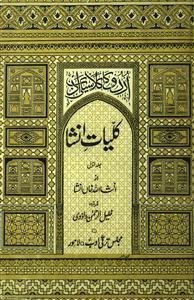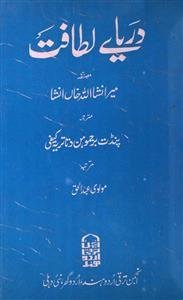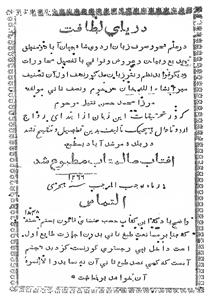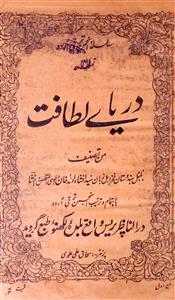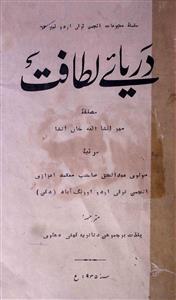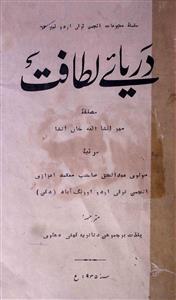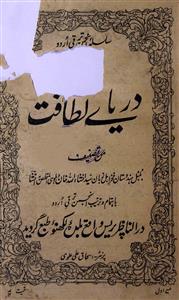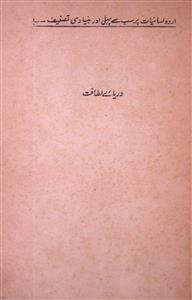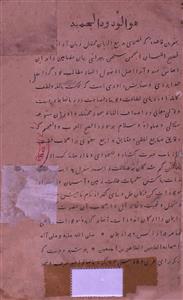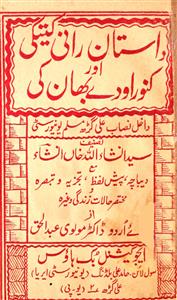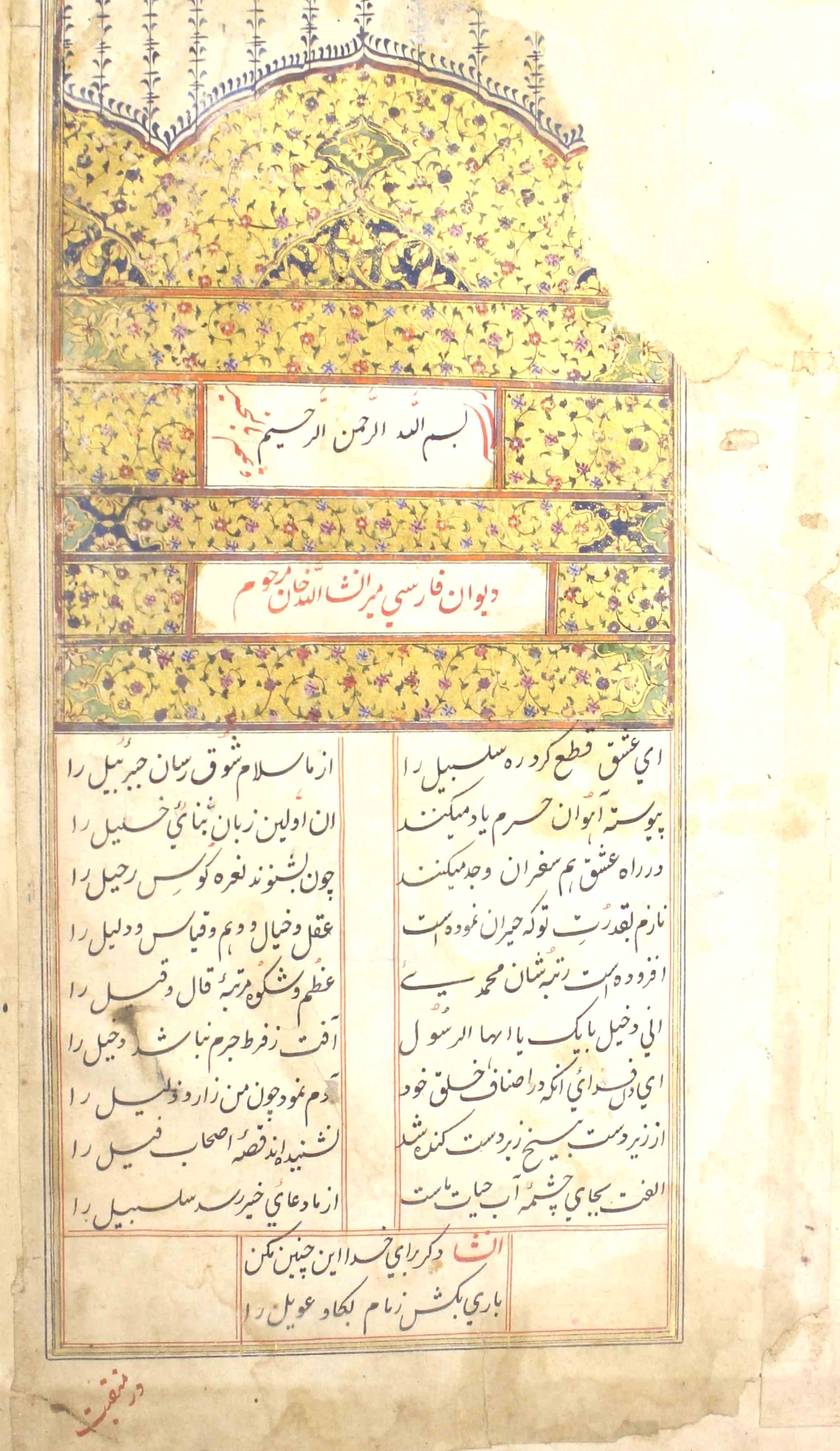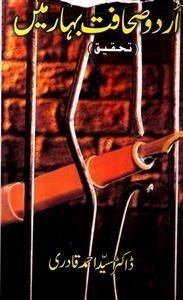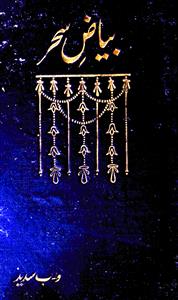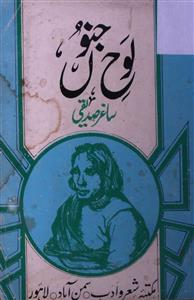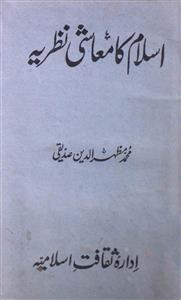 For any query/comment related to this ebook, please contact us at haidar.ali@rekhta.org
For any query/comment related to this ebook, please contact us at haidar.ali@rekhta.org
About The Book
ریختہ گوئی میں انشا کا خاص اسلوب ہے ۔ اس میں ان کا کوئی ہم پلہ اور نظیر نہیں ہے۔ ان کے کلام میں فصاحت بھرپور ہوتی ہے ۔ فارسی اور اردو زبانوں میں شاعری کمال درجے کی ہے ۔ انشاء نے غزل میں الفاظ کے متنوع استعمال سے تازگی پیدا کرنے کی کوشش کی اور اس میں بڑی حد تک کامیاب بھی رہے۔ تاہم بعض اوقات محض قافیہ پیمائی اور ابتذال کا احساس بھی ہوتا ہے۔ انشاء کی غزل کا عاشق لکھنوی تمدن کا نمائندہ بانکا ہے۔ جس نے بعد ازاں روایتی حیثیت اختیار کر لی جس حاضر جوابی اور بذلہ سنجی نے انہیں نواب سعادت علی خاں کا چہیتا بنا دیا تھا۔ اس نے غزل میں مزاح کی ایک نئی طرح بھی ڈالی۔ زبان میں دہلی کی گھلاوٹ برقرار رکھنے کی کوشش کی۔ اس لیے اشعار میں زبان کے ساتھ ساتھ جو چیز دگر ہے اسے محض انشائیت ہی سے موسوم کیا جاسکتا ہے۔ زیر نظر کلیات انشا (جلد اول) کی ابتدا یوم الست کی یاد دہانی سے ہوئی ہے اور بتایا گیا ہے کہ تخلیقِ بنی نوع انسان کا مقصد کیا ہے۔ آگے مناقب و قطعات پیش کیے گئے ہیں ، ان کی تعداد ۴۵۸ ہے ۔آخر میں "انشا کا غیر مطبوعہ کلام" کے عنوان کے تحت ان کے غیر مطبوعہ چند شعری نمونے پیش کیے گئے ہیں، یہ نمونے پٹنہ کے دانش کدہ سے حاصل ہوئے ہیں۔ اگر کہیں پر شعری الفاظ یا مفہوم میں اغلاق نظر آیا تو اس کی تشریح فٹ نوٹ لگا کر کردی گئی ہے۔ قطعات کے ردیف کی ترتیب حروف تہجی کے حساب سے ہے ۔ انشا کا کلام ادب کا پرتو، جوانوں کی امنگوں کا عکس ، ارمانوں کا مرقع اور ولولوں کا خاکہ ہوتا ہے۔
About The Author
Insha Allah Khan (1752-1817), better known by his pen name of Insha, was born in Murshidabad where his father, Mir Masha Allah khan, a royal physician and also a poet, had migrated from Delhi following the decline of the Mughal Empire and received the patronage of Nawab Sirajuddaulah. Insha received his early education and advice on his poetry mostly from his father. Later, his father brought him back to the court of Shah Alam II in Delhi who valued his poetry, his verbal dexterity, and his ready wit. With the fall of Delhi durbar, Insha migrated to Lucknow where he joined the court of Nawab Mirza Sulaiman Shikoh, a poet and a patron of poets, and became his favourite to the extent that the nawab replaced his mentor Ghulam Hamdani Mus’hafi and appointed Insha in his place. This led to a legendry rivalry between these two major poets of the age which subsequently became a part of the Urdu’s literary history. As Insha was a sociable person and wanted to explore better opportunities in life, he also developed a good relationship with Nawab Sa’adat Yaar Khan. However, his acerbic tongue and derisive remarks, which he made without much consideration, landed him in disfavour with his patrons and contemporary poets. With the seizure of stipend from his patrons and left with no sources of sustenance in the later period of his life, Insha lived a life of misery in Lucknow where he died and lies buried.
Insha was a remarkable polyglot and had a unique expertise in various languages and dialects like Arabic, Persian, Turkish, Punjabi, Pushto, Marathi, Kashmiri, Poorabi, Rekhti, Marwari, and Hindi. He could also compose verses in them. He is valued as the first author of a complete grammar of Urdu language in Persian called Daryaa-i-Lataafat. He also wrote a fascinating fictional narrative called Raani Ketaki ki Kahaani that did not have a word of Arabic and Persian in it. It also happens to be the earliest work of Urdu prose. Endowed with unique resourcefulness with the written word, he could appropriate a great variety of ideas, events, and anecdotes into his poetry. Insha has left behind his works in various forms and genres of ghazal, qasida, and mathnawi in Persian and Urdu, apart from miscellaneous poetical compositions in the forms of hamd, naat, manqabat, qita, rubai, hajw, and riddles.
 For any query/comment related to this ebook, please contact us at haidar.ali@rekhta.org
For any query/comment related to this ebook, please contact us at haidar.ali@rekhta.org
Write a Review
Jashn-e-Rekhta 10th Edition | 5-6-7 December Get Tickets Here
